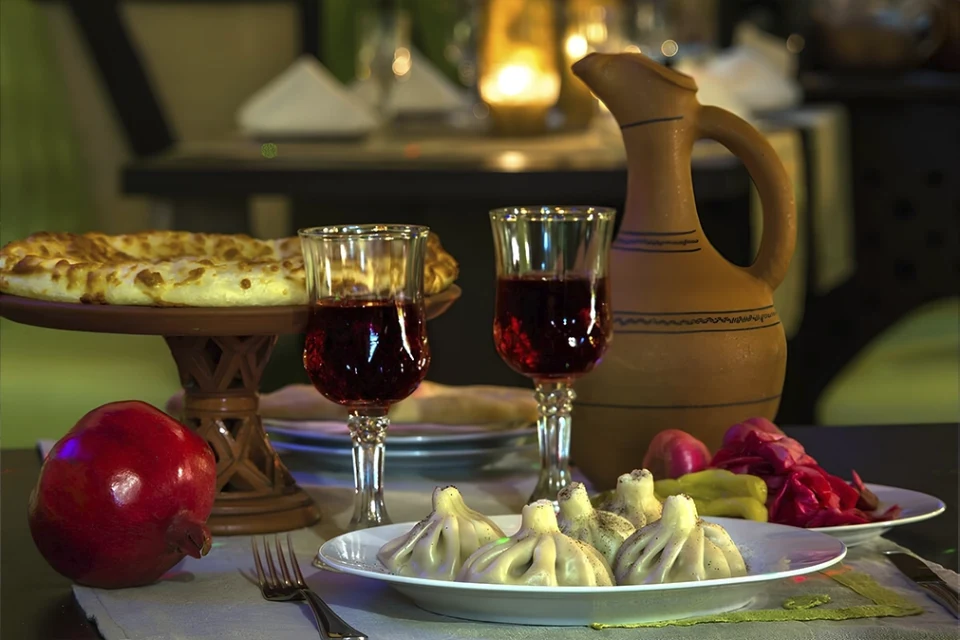Georgian culture
- Georgian culture is rich and diverse, deeply rooted in the history and traditions of the Georgian people. Situated at the crossroads of Europe and Asia, Georgia has been influenced by various civilizations and empires, which is reflected in its cultural heritage. Georgian culture is an exotic, mysterious and ancient culture stretching back for millennia. Elements of Anatolian, European, Persian, Arabian, Ottoman and Far Eastern cultures have influenced Georgia’s own ethnic identity resulting in one of the most unique and hospitable cultures in the world.
- The Georgians are a proud people with an ancient culture. They have through the ages been noted as warriors as well as for their hospitality, love of life, lively intelligence, sense of humor, and reputed longevity. Here are some key aspects of Georgian culture:
Language and Literature
- Georgian Language: The Georgian language is unique, with its own script and no close relatives among other languages. It is part of the Kartvelian language family.
- Literature: Georgian literature has a long history, with one of the most famous works being the epic poem “The Knight in the Panther’s Skin” by Shota Rustaveli, written in the 12th century. The poem is a significant cultural treasure and is studied widely in Georgia.
- The Georgian alphabet is traditionally said to have been invented in the 3rd century BC and reformed by King Parnavaz I of Iberia in 284 BC. Most modern scholarship puts its origin date at some time in the 5th century AD, when the earliest examples can be found.
Music and Dance
- Polyphonic Singing: Georgian polyphonic singing is a UNESCO Intangible Cultural Heritage. This tradition involves multiple voices singing in harmony, creating a unique and complex sound.
- Traditional Dance: Georgian dance is energetic and expressive, often involving fast footwork and elaborate costumes. Different regions have their own distinct dance styles, such as the Kartuli, Khorumi, and Acharuli.
Cuisine
- Food: Georgian cuisine is known for its diverse and flavorful dishes. Some famous dishes include khachapuri (cheese-filled bread), khinkali (dumplings), and various types of meat and vegetable stews. Georgian wine, one of the oldest winemaking traditions in the world, is also a significant part of the culture.
- Supra: The traditional Georgian feast, called a “supra,” is a vital social and cultural event. It is led by a “tamada” (toastmaster) who proposes various toasts, often accompanied by songs and poetry.
Art and Architecture
- Religious Art: Georgia is home to many ancient churches and monasteries, adorned with frescoes and religious icons. The country’s art often reflects its Christian heritage.
- Architecture: Georgian architecture ranges from ancient fortresses to modern buildings. The traditional stone towers of Svaneti and the old city of Tbilisi with its wooden balconies are notable examples.
Festivals and Traditions
- National Holidays: Georgia celebrates several national holidays with deep cultural significance, such as Independence Day and Easter. The New Wine Festival and Tbilisoba (a festival celebrating the capital city, Tbilisi) are also important cultural events.
- Folklore and Mythology: Georgian folklore is rich with legends, myths, and tales that often feature heroic figures, mythical creatures, and moral lessons.
Religion
- Orthodox Christianity: The majority of Georgians belong to the Georgian Orthodox Church, which plays a significant role in cultural and daily life. The church’s influence is evident in various aspects of Georgian art, literature, and traditions.
- This long history has provided a national narrative which encompasses the successful preservation of unique culture and identity in a consistent territory, despite powerful external pressures from different directions. Christianity and the Georgian language are particularly important national identifiers. Georgian culture is marked by its hospitality, respect for tradition, and pride in its unique identity. The country’s history, geography, and religious traditions have all contributed to the development of a distinctive and vibrant cultural landscape.
5 main reasons why Georgia is worth traveling to Georgia stands out from other countries with its unique nature, historical heritage, language and cultural diversity. It is a country that captivates visitors with its beautiful landscapes, ancient culture and warm-hearted people. Exceptional nature From the Caucasus Mountains to the Black Sea climate, Georgia offers stunning… Continue reading 5 main reasons why Georgia is worth traveling to
Georgian culture Georgian culture is rich and diverse, deeply rooted in the history and traditions of the Georgian people. Situated at the crossroads of Europe and Asia, Georgia has been influenced by various civilizations and empires, which is reflected in its cultural heritage. Georgian culture is an exotic, mysterious and ancient culture stretching back for… Continue reading Georgian Culture
The History of Georgian Wine Ancient Origins Georgia is often referred to as the “cradle of wine,” with a winemaking tradition that dates back over 8,000 years. Archaeological evidence, including ancient grape pips and winemaking artifacts, suggests that the cultivation of grapes and production of wine began in the region around 6000-5800 BCE. The… Continue reading Georgian Wine
When you think of Georgia, your mind may wander to breathtaking mountain landscapes, ancient churches, and warm hospitality. But to truly understand the soul of this beautiful country, you must experience its food. Georgian cuisine is a rich blend of bold flavors, fresh ingredients, and centuries-old traditions — a true feast for the senses. Georgian… Continue reading Georgian Cuisine
Georgia, nestled at the crossroads of Europe and Asia, offers a diverse array of resorts that cater to every traveler’s desires—from serene mountain retreats and rejuvenating spa towns to sun-kissed Black Sea beaches and historic wine regions. Here’s a curated guide to some of the country’s most captivating resort destinations. Everyone likes to vacay at… Continue reading Resorts of Georgia






